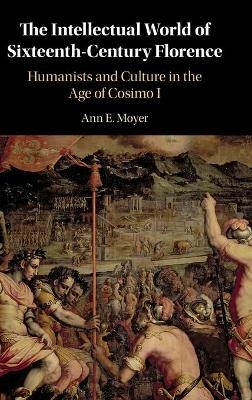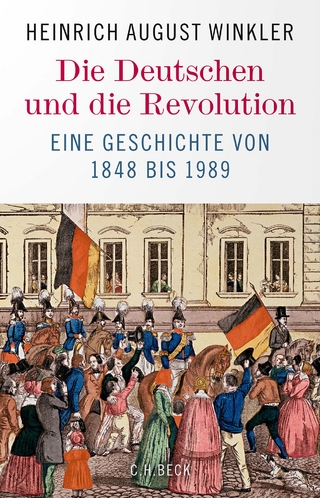
The Intellectual World of Sixteenth-Century Florence
Humanists and Culture in the Age of Cosimo I
Seiten
2020
Cambridge University Press (Verlag)
978-1-108-49547-9 (ISBN)
Cambridge University Press (Verlag)
978-1-108-49547-9 (ISBN)
This study provides an overview of Florentine intellectual life and community in the late Renaissance. It shows how studies of language helped Florentines to develop their own story as a people distinct from ancient Greece or Rome.
By the sixteenth century, Florence was famous across Europe for its achievements in the arts, letters, and humanist learning. Its intellectual life flourished anew at midcentury with Duke Cosimo and the Accademia Fiorentina. In this study, Ann Moyer provides an overview of Florentine intellectual life and community in the late Renaissance. She shows how studies of language helped Florentines develop their own story as a people distinct from ancient Greece or Rome, trace the rise of the city's medieval government, and explore how the city evolved into a hospitable environment for letters and the arts. Studies of Florentine art gave rise to art history, while those devoted to Florentine traditions and customs inspired broader questions about how to think about cultural change. Demonstrating how the intellectual activity around language, history, and art related and supported each other, Moyer's book documents the origins of the modern narrative of the Renaissance itself.
By the sixteenth century, Florence was famous across Europe for its achievements in the arts, letters, and humanist learning. Its intellectual life flourished anew at midcentury with Duke Cosimo and the Accademia Fiorentina. In this study, Ann Moyer provides an overview of Florentine intellectual life and community in the late Renaissance. She shows how studies of language helped Florentines develop their own story as a people distinct from ancient Greece or Rome, trace the rise of the city's medieval government, and explore how the city evolved into a hospitable environment for letters and the arts. Studies of Florentine art gave rise to art history, while those devoted to Florentine traditions and customs inspired broader questions about how to think about cultural change. Demonstrating how the intellectual activity around language, history, and art related and supported each other, Moyer's book documents the origins of the modern narrative of the Renaissance itself.
Ann E. Moyer is Associate Professor of History at the University of Pennsylvania. A scholar of the intellectual and cultural history of Renaissance Europe, she serves as one of the executive editors of the Journal of the History of Ideas.
Introduction; 1. Florence and Cosimo; 2. Who Were the Florentines? Etruscan Roots; 3. Florentine Histories; 4. Language and its Study; 5. Philological Approaches; 6. Writing about the Arts; 7. Florentine Customs and Practices; 8. Conclusions.
| Erscheinungsdatum | 27.07.2020 |
|---|---|
| Zusatzinfo | Worked examples or Exercises |
| Verlagsort | Cambridge |
| Sprache | englisch |
| Maße | 156 x 240 mm |
| Gewicht | 700 g |
| Themenwelt | Kunst / Musik / Theater ► Kunstgeschichte / Kunststile |
| Geschichte ► Allgemeine Geschichte ► Neuzeit (bis 1918) | |
| Geisteswissenschaften ► Geschichte ► Regional- / Ländergeschichte | |
| ISBN-10 | 1-108-49547-8 / 1108495478 |
| ISBN-13 | 978-1-108-49547-9 / 9781108495479 |
| Zustand | Neuware |
| Informationen gemäß Produktsicherheitsverordnung (GPSR) | |
| Haben Sie eine Frage zum Produkt? |
Mehr entdecken
aus dem Bereich
aus dem Bereich
Giordano Bruno - ein ketzerisches Leben
Buch | Hardcover (2024)
C.H.Beck (Verlag)
29,90 €
das dramatische 16. Jahrhundert
Buch | Hardcover (2024)
Rowohlt Berlin (Verlag)
34,00 €
eine Geschichte von 1848 bis 1989
Buch | Hardcover (2023)
C.H.Beck (Verlag)
24,00 €


